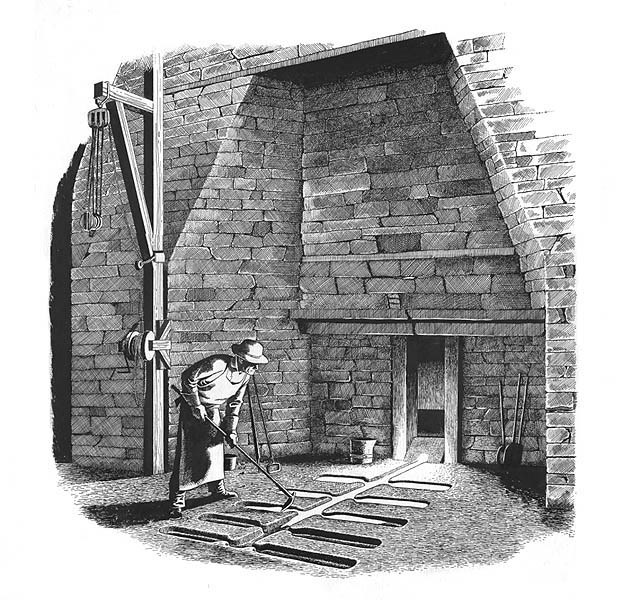Last updated: March 23, 2022
Article
Iron Workers

NPS Image / Hopewell Furnace National Historic Site
The iron workers were recruited from England for their special iron making knowledge. Skilled iron workers were not Puritan, and they were not property owners, so they did not have a say in the governance of the colony. Iron workers and Puritans often disagreed on religious practices and laws. They had different ideas about how to behave in the community. The iron workers often got into trouble for drinking, gambling, fighting, swearing, not attending Puritan church, and wearing fine clothes.
Some of the iron workers were indentured servants. An indentured servant was a worker who agreed to work for an employer for a certain amount of time without wages or for limited wages. An indentured servant usually worked for three to seven years in exchange for their transportation, food, clothing, housing, and other necessities. People might agree to become indentured servants in exchange for passage to New England.
Wives of the iron workers sometimes came with their husbands as part of their husbands' indenture agreements. Some did work for the iron works company, such as making clothing. They sometimes disagreed with the Puritans on how they should raise their children. Like Puritan children, children of iron workers were required by law to attend school. They learned to read and write the same as all children, but iron workers often did not share the Puritans' value of education. Many parents needed their children to help at home or preferred to have them apprenticed to a skilled worker.
